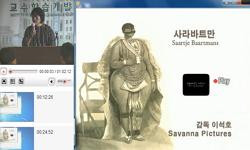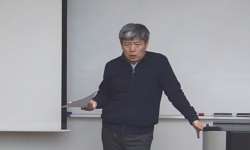본 연구는 대만 민주진보당이 추동한 다문화 정치와 대만 원주민족이 추진한 원주민 정명운동이 상호 어떠한 접점을 지니며, 서로 어떻게 결합되었는지를 분석하는 데 그 목적이 있다. 대만...
http://chineseinput.net/에서 pinyin(병음)방식으로 중국어를 변환할 수 있습니다.
변환된 중국어를 복사하여 사용하시면 됩니다.
- 中文 을 입력하시려면 zhongwen을 입력하시고 space를누르시면됩니다.
- 北京 을 입력하시려면 beijing을 입력하시고 space를 누르시면 됩니다.
부가정보
국문 초록 (Abstract)
본 연구는 대만 민주진보당이 추동한 다문화 정치와 대만 원주민족이 추진한 원주민 정명운동이 상호 어떠한 접점을 지니며, 서로 어떻게 결합되었는지를 분석하는 데 그 목적이 있다. 대만의 다문화 정치는 민주화의 진전에 따라 억눌려 있던 다양한 족군의 권리 요구가 표면화되면서 본격적으로 전개되었으며, 이는 대만인 정체성 구축을 지향한 민진당의 대만 정명운동과 원주민의 집단적 정체성 회복 운동이 서로 맞물리는 계기가 되었다. 특히 원주민은 자신들의 언어, 역사, 문화적 정체성을 되찾고, 오랫동안 억압되어 온 권리를 회복하고자 교육·문화 운동에서 출발해 정치적 대표성, 자치권, 토지권 등 실질적인 권리 요구로 나아갔다. 이러한 흐름 속에서, 타자에 의해 규정된 명명 방식을 거부한 민진당의 대만 정명운동은 단순한 호칭 변경을 넘어 국가 권력이 생산한 언어 질서에 대한 저항이자, ‘대만’이라는 이름으로 국가 정체성을 재구성하려는 정치적 프로젝 트로 전개되었다. 원주민의 정명운동 또한 국민당 체제 아래 ‘산지동포’나 ‘산지인’과 같은 타자화된 호칭에 대한 비판에서 출발하였으며, 이는 자율적인 자기 정체성 확립을 위한 투쟁으로 발전하였다. 본 연구는 이러한 원주민 정명운동이 단순한 문화 보존이나 민족적 권리 회복을 넘어서, 민진당이 추구하는 새로운 국가 정체성과 정치적 정당성과 긴밀히 연결되어 있음을 밝히고자 한다. 이를 통해 대만 다문화 정치의 구조와 탈식민 시대의 정체성 회복이라는 측면에서 갖는 동아시아적 함의를 고찰하고자 한다.
다국어 초록 (Multilingual Abstract)
This study aims to analyze the point of convergence between the multicultural politics promoted by the Democratic Progressive Party (DPP) and the Indigenous name rectification movement initiated by Taiwan’s Indigenous peoples, and to examine how the...
This study aims to analyze the point of convergence between the multicultural politics promoted by the Democratic Progressive Party (DPP) and the Indigenous name rectification movement initiated by Taiwan’s Indigenous peoples, and to examine how these two movements became interconnected. Taiwan’s multicultural politics began to take shape as the suppressed demands for the rights of various ethnic groups came to the forefront with the advancement of democratization. This became a key moment where the Democratic Progressive Party’s movement for Taiwan’s identity-building and the indigenous people’s efforts to restore their collective identity intersected. Particularly, the indigenous people sought to reclaim their language, history, and cultural identity, and to recover the rights that had long been oppressed. This journey began with educational and cultural movements, gradually progressing to demands for political representation, autonomy, land rights, and other tangible rights. Within this context, the DPP’s movement for Taiwan’s identity, which rejected the naming conventions imposed by the Other, evolved into a political project that went beyond mere changes in nomenclature. It became a resistance against the linguistic order produced by state power and an effort to reconstruct national identity through the name “Taiwan”. The indigenous people’s movement for renaming also originated from a critique of the othering labels such as “mountain compatriots” or “mountain people” under the Kuomintang regime, and it evolved into a struggle for the establishment of an autonomous self-identity. This study aims to demonstrate that the indigenous renaming movement is closely linked not only to cultural preservation or the recovery of ethnic rights, but also to the new national identity and political legitimacy pursued by the DPP. Through this, the study seeks to examine the implications of Taiwan’s multicultural politics and the restoration of identity in the post-colonial era from an East Asian perspective.
목차 (Table of Contents)
- Ⅰ. 서론
- Ⅱ. 대만 원주민족 명칭·분류·인구 현황
- Ⅲ. 민진당의 다문화 정치와 원주민 운동
- Ⅳ. 민진당과 원주민의 정명운동
- Ⅴ. 결론
- Ⅰ. 서론
- Ⅱ. 대만 원주민족 명칭·분류·인구 현황
- Ⅲ. 민진당의 다문화 정치와 원주민 운동
- Ⅳ. 민진당과 원주민의 정명운동
- Ⅴ. 결론
- 참고문헌
- 국문초록
- Abstract
동일학술지(권/호) 다른 논문
-
Factors Influencing the Acceptance of Ride Hailing Apps by Millennials in Chongqing, China
- 중국지역학회
- Zhang, KaiNeng
- 2025
- KCI등재
-
- 중국지역학회
- Li, LiXin
- 2025
- KCI등재
-
- 중국지역학회
- Zhang, XinYue
- 2025
- KCI등재
-
- 중국지역학회
- 중국지역학회
- 2025
- KCI등재





 KCI
KCI eArticle
eArticle





